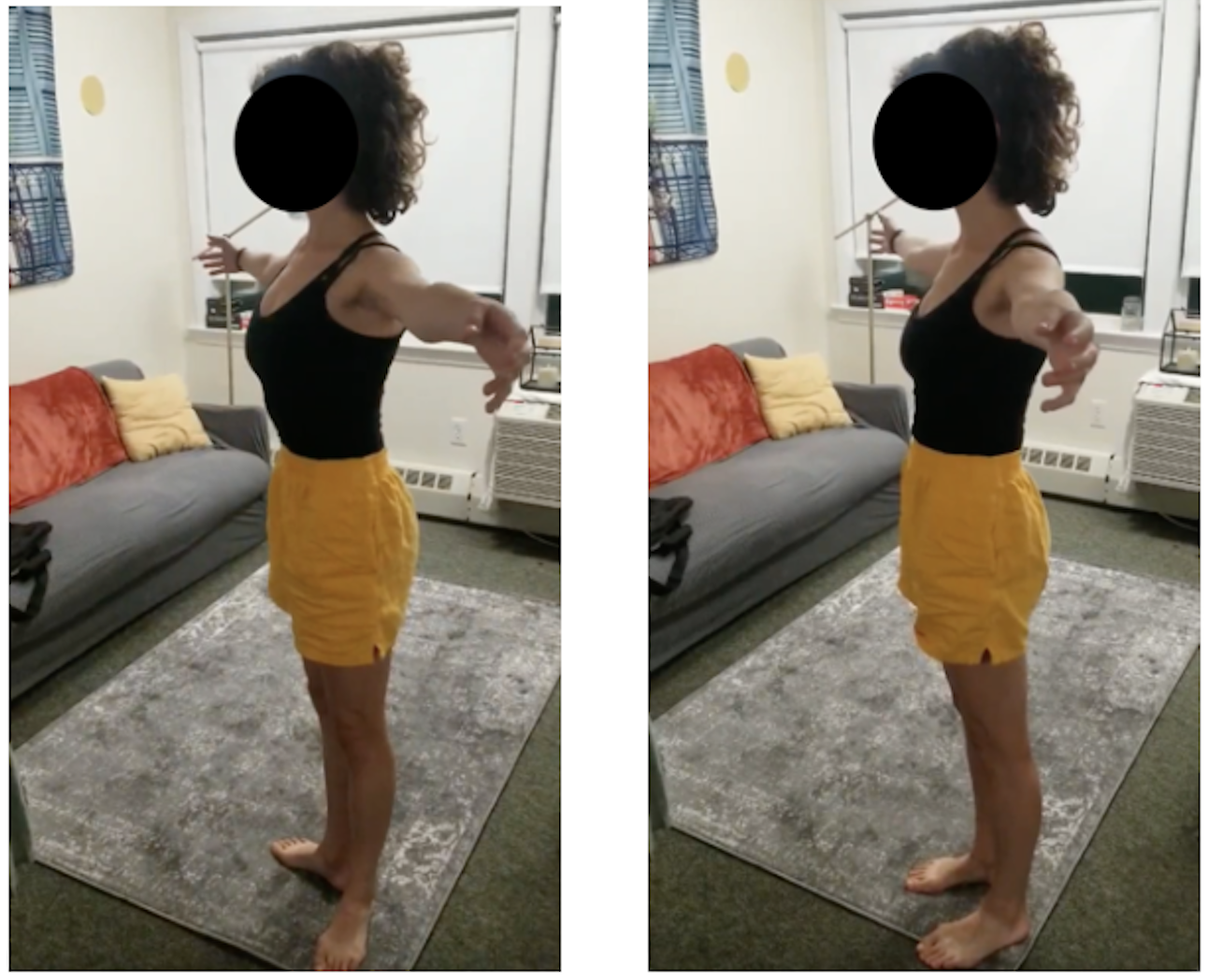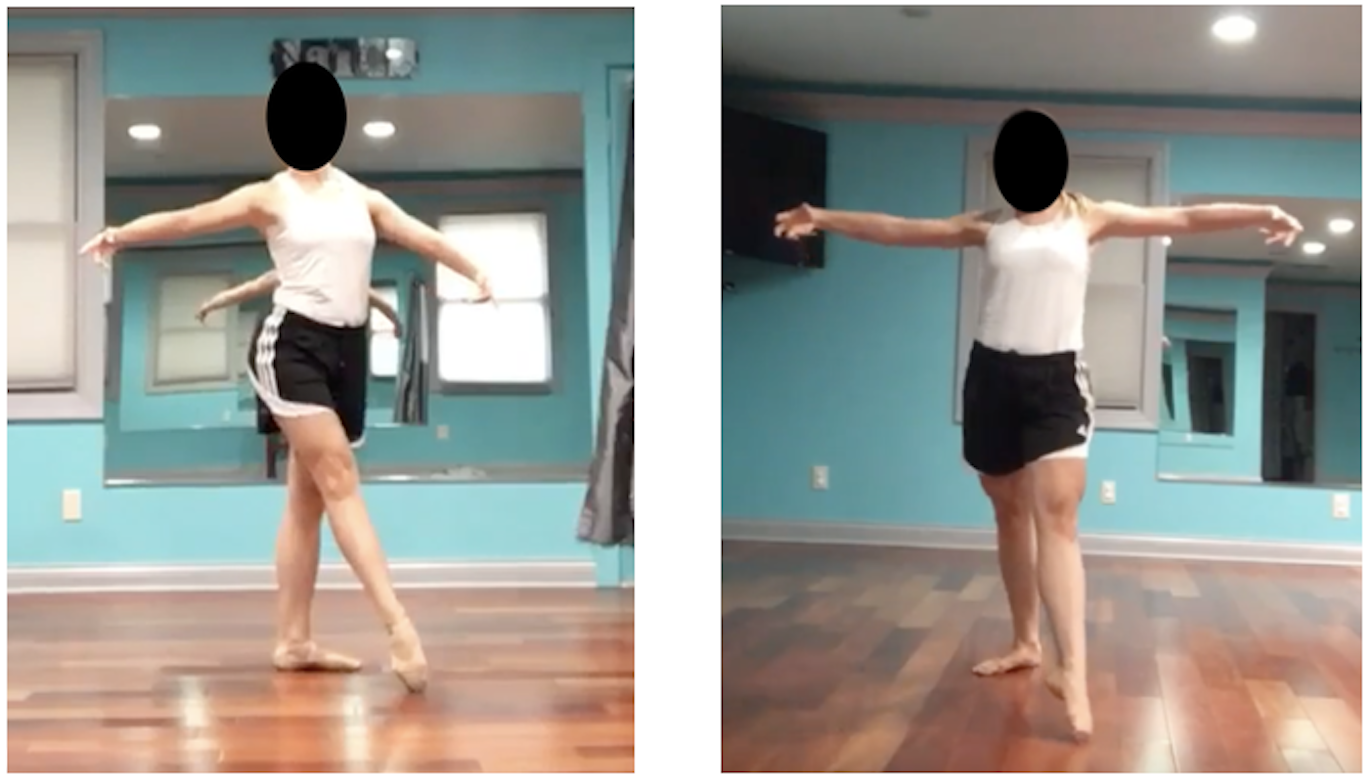Understanding Dance Style Transitions to Improve the Design of Dance Learning Support Systems
I defined a dance style transition as a moment – short- and long-term – when a dancer changes from training and working in one style of dance, like classical ballet, to another style. I studied this transition experience to understand: the long-term, personal and professional evolution of a professional dancer’s career; how to design technology to support the life and practices of professional dancers; and to critically examine the current designs and intentions of movement-based interactive systems for dance learning and choreography.
I posed the following questions: What are their key challenges and strategies for overcoming the challenges of dance style transitions? And how do we build technology to support the individual dancer during this process?

I interviewed 12 professional and pre-professional, style-transitioned dancers, asking for examples of movements or concepts that exist both in classical ballet and their current style of dance. I focused on their experience learning the movement, their strategies in- and outside of the studio, and the external guidance they received during the process.

I identified three key challenges —overcoming habits, learning new forms of movement, transitioning over time— and dancers’ strategies for addressing them. We argue that successful tools must help dancers change their mentality toward the dance learning context and actors, rather than focusing solely on supporting movement mechanic improvement. We suggest three possible implications for design: develop movement substrates that handle multiple movement representations; integrate traditional learning and reflection in a single session; and create movement definitions through movement.

I published, with my co-author Wendy Mackay, an article summarizing our work at the 2022 ACM CHI Conference on Human Factors in Computing Systems, entitled Dance Transitions: What Forms of Technology Best Support Professional Dancers as They Learn New Movement Styles?. Watch the pre-recorded talk here. Read the article here.
Feel free to contact me with any questions or thoughts!
